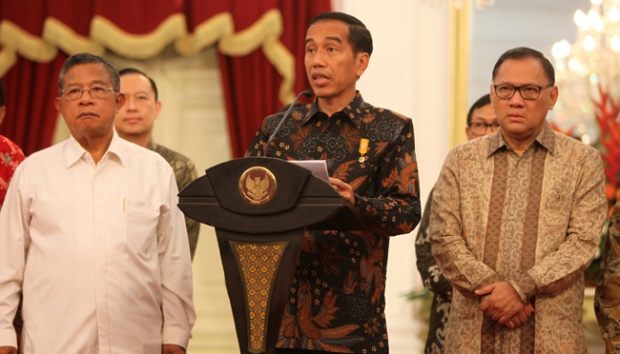Unregulated Deregulations
Translator
Editor
Kamis, 1 Januari 1970 07:00 WIB

TEMPO.CO, Jakarta - Launched nine months ago, the government's 12 economic policy packages are seen as having failed to stimulate growth. Containing 203 different provisions, the packages have been inconsistently implemented in their objective of achieving a 5.3 percent growth target this year.
The main thrust of it all has been to pull in as much foreign investment as possible. But the second-quarter results show a mere realization of Rp545 trillion, or 30 percent of last year's total commitment of Rp1.852 quadrillion. This is even lower than the predicted outcome before the much-vaunted packages were launched. Worse, it failed to make any difference to Indonesia's 114th position in the World Bank's index on the ease of doing business, which remains below Malaysia, Vietnam and the Philippines.
It does not help that the business community has its own share of complaints, among them a lack of focus and the absence of a core strategy to hold the packages together. As a result, many of them contain holes and, most importantly, an obvious lack of coordination among the ministries. In short, business leaders are at a loss on how to properly read the government's intentions.
Take, as one example, the opening up of the negative investment list. A number of sub-clauses in the package clearly have the potential to kill off local businesses. For one, allowing foreigners to own majority shares in one- or two-star hotels is under fire because it would surely sideline small-time local investors.
Another complaint is the requirement to paste Indonesian-language labels on all products, which could lead to additional costs and complications. Then there is the East Java provincial regulation banning the supply and sale of alcoholic beverages, which contradicts a trade ministry regulation.
Moreover, there are numerous cases of incentives that have yet to be implemented. Take one major stimulus: a 30 percent discount on electricity usage from 11pm to 8am for all industries a time when public consumption is at the lowest. Apparently, this has only been applied to industries with high-power usage.
Unfortunately, the 5.3 percent growth forecast in the government's 2016 state budget rests once again on an overly ambitious revenue target of Rp1.527 quadrillion. As of last May, realized revenues had only reached a mere Rp364 trillion, or about 26.8 percent of that target. Indeed, this is even lower than revenues earned during the same period last year, which was Rp377 trillion.
Not surprisingly, the deficit has been steadily rising to Rp189 trillion, or about 1.49 percent, even though it is still considered to be in the safe zone. The problem will arise when a worst-case scenario is not anticipated, with the deficit going out of control and breaching the 3 percent limit set by the state finances law.
In an attempt to avoid such a budgetary nightmare, the government has cut its forecasts for expenditures and revenues. In the revised 2016 budget, spending was lowered by about Rp48 trillion to Rp2.048 quadrillion, while the revenue assumption was knocked back by Rp88 trillion to Rp1.722 quadrillion. The deficit, too, was realistically raised from 2.15 to 2.5 percent. But because the growth target was not significantly corrected, the current expected revenues will still remain difficult to achieve.
The government has high hopes of covering the revenue shortage through its newly launched tax amnesty program, which it projects will bring in a Rp165 trillion windfall. No one, however, can guarantee that will happen. In fact, setting targets based on unknown outcomes seems to be a rash thing to do like making false promises that could ultimately render our budget far from credible.
We sincerely hope the tax amnesty program will be successful, but it would be wise for the government to have an alternative way of gathering additional revenues to spur economic growth.
One easy solution would be to raise new loans. Another would be to find ways to boost domestic consumption, or at least defer policies that will limit consumption. In the past, the government introduced a direct cash assistance program to maintain domestic spending in the wake of fuel subsidy reductions.
Most importantly, chief economic minister Darmin Nasution's task force, assigned to monitor and evaluate the new reform packages, must work hard and fast to bring about a more effective implementation. It must immediately evaluate the effects of the packages so they can be improved in the midst of the continuing uncertain global economy. Any additional regulations that impede investment should be immediately addressed and amended. (*)
Read the full story in this week's edition of Tempo English Magazine




















